Bite the Dust
 I watched an old friend bite the dust last week. He had greeted me faithfully every day for years. Standing stately and tall, the mighty oak inspired me to do the same.
I watched an old friend bite the dust last week. He had greeted me faithfully every day for years. Standing stately and tall, the mighty oak inspired me to do the same.
I knew my friend was dying.
He was many times older than me. With each new season, he grew weaker and suffered more losses. Yet, my heart hurt when he finally fell.
Oh, the stories he could have told, if only he could have talked.
- Birds born in his branches
- Children who played in his shade
- Young love ignited with spring’s new growth
- Seniors who smiled at memories shared
- Death of people, plants, and pets
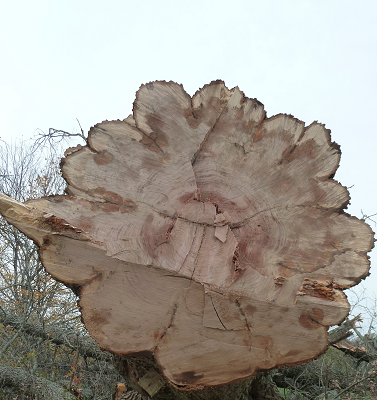 Like the circles inside his trunk, so goes life.
Like the circles inside his trunk, so goes life.
- Birth
- Childhood
- Adolescence
- Adulthood
- Death – the end of the road
We all die. Eventually we bite the dust.
However, death does not have to be the end.
When Jesus rose from His tomb on the third day, He defeated sin and death.
If we accept Jesus as Savior and Lord, we receive His victory over sin and death.
He promises an eternal home in heaven when we leave this world.
Thank you for the reminder, dear friend. I will miss you.
“‘He will wipe every tear from their eyes. There will be no more death’ or mourning or crying or pain, for the old order of things has passed away.” (Revelation 21:4 NIV).
Thanks to Jeri Stone for the photo of my friend before he bit the dust.
Do you have an expression you want explained? If so, please comment below.
Subscribe to receive my weekly posts by email and receive a free copy of “Words of Hope for Days that Hurt.”
If you enjoyed this post, please share it with your friends.
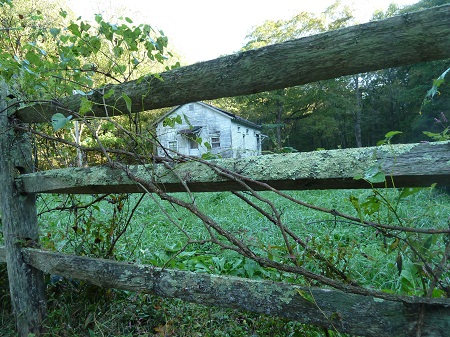 Have you noticed how often we change our lives? We try to improve ourselves, other people, or our possessions. A desire to improve can be a wonderful idea. However, if it ain’t broke, don’t fix it. (I apologize for the poor grammar, but that is the way we say it.)
Have you noticed how often we change our lives? We try to improve ourselves, other people, or our possessions. A desire to improve can be a wonderful idea. However, if it ain’t broke, don’t fix it. (I apologize for the poor grammar, but that is the way we say it.)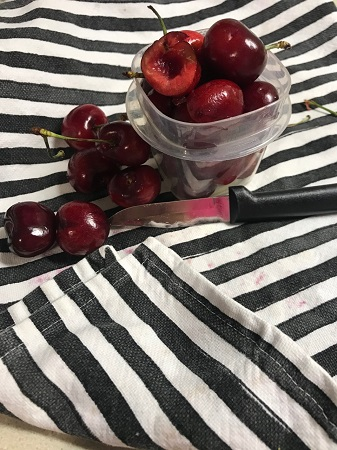 Many in the world have faced difficult circumstances in recent days. A few describe their situation as the pits.
Many in the world have faced difficult circumstances in recent days. A few describe their situation as the pits. Like several animals (and a few people) dogs can be dangerous when suddenly wakened. Therefore, we usually let sleeping dogs lie. We leave them alone to sleep in peace.
Like several animals (and a few people) dogs can be dangerous when suddenly wakened. Therefore, we usually let sleeping dogs lie. We leave them alone to sleep in peace. Many of us live with cold feet. We don’t need winter, snow, or freezing rain. Our feet stay cold any time of year in any kind of weather.
Many of us live with cold feet. We don’t need winter, snow, or freezing rain. Our feet stay cold any time of year in any kind of weather. Many times we feel like we are drowning in a sea of responsibility. The storms of life hit. We have too much to do with too little time or energy to do it. Yet, we keep on keeping on.
Many times we feel like we are drowning in a sea of responsibility. The storms of life hit. We have too much to do with too little time or energy to do it. Yet, we keep on keeping on. Other storms remain with us.
Other storms remain with us. They choose a slower, more relaxed lifestyle.
They choose a slower, more relaxed lifestyle.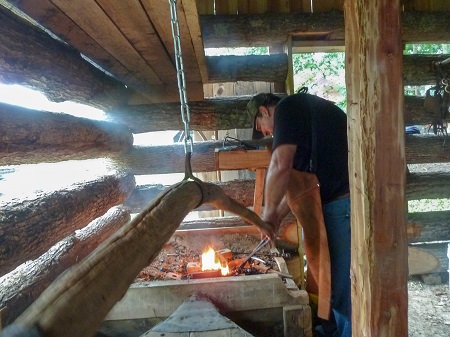 Anthony Salyers demonstrates the work of an old-time blacksmith shop during
Anthony Salyers demonstrates the work of an old-time blacksmith shop during  I always wanted to hit a ball over the fence when I played softball. I never did. No matter how hard I would swing for the fences, I could not do it.
I always wanted to hit a ball over the fence when I played softball. I never did. No matter how hard I would swing for the fences, I could not do it.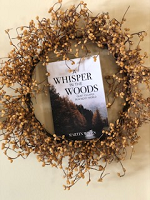 Do you have an expression you want explained? If so, please comment below.
Do you have an expression you want explained? If so, please comment below. Please welcome my friend Andrea Giordano as today’s guest writer. I met Andrea when she was Executive Director of TESOL and ESL Programs at
Please welcome my friend Andrea Giordano as today’s guest writer. I met Andrea when she was Executive Director of TESOL and ESL Programs at  Running on fumes means you are tired or have little emotional energy.
Running on fumes means you are tired or have little emotional energy.